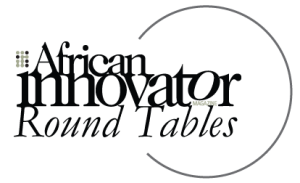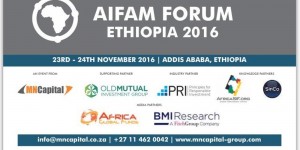Ethiopia International Trade Expo is a leading international trade exhibition exhibiting a wide range of products from different industries and includes general trade, food and agriculture, construction equipments, building materials and equipments, electrical and electronic appliances, automobile products, information technology, oil and gas equipments and products, fashion accessories and products, textile products and much more to add to the list. The trade serves as an exclusive platform where the buyers and sellers meet and both get benefitted. It also generates huge volumes of sales.
The 2016 “Ethio Health Exhibition & Congress” session will be held from 11th – 13th March at the Addis Ababa Millennium Hall. Under patronage Food, Medicine and Healthcare Administration and Control Authority of Ethiopia and support of Ministry of Health and Addis Ababa Health Bureau.
This event will show cases more than 150 brands of products & services from Medical equipments & Pharmaceuticals, Scientific Instruments & in consumables, Hospitals & Specialized Clinics, Wellness & Fitness Centers and Herbal & Cosmetics Industries.
Registration is already starts, please confirm your participation before September 2015 and get 10% discount.
Ethio Health Exhibition and Congress is a grand show of its kind which will have exhibits from leading exhibitors from the sectors of health, wellness and beauty. This show will have exhibits from regional and local Manufacturers, distributors and service providers from fields like Medical technology, Medical consumables and Disposables, Medical services and Publications, Surgical products, Imaging and Diagnostics, Laboratory Equipments and furnitures, Hospital furniture and supplies, Physiotherapy and orthopedics technology, Healthcare Products and services, General and specialized Hospitals, First Aid equipments and emergency service, Pharmaceutical products, Wellness and fitness, Commodity and consumer goods.
The SEEP Network has partnered with Pollen Group to offer an introductory course on inclusive market systems development (MSD) in thin markets, in contexts such as post-conflict, environment related emergencies, and highly underdeveloped markets with limited or distorted private sector engagement. The training will strengthen practitioner application of systems-thinking and facilitative approaches to program design and implementation. The outcome of this course is a more comprehensive understanding of how to instigate systemic change in thin markets, leading to larger and more sustainable impact.
Throughout the training, participants will engage with a fictional case study based on the experiences of SEEP members implementing MSD programs in thin markets. This case will help practitioners to identify vulnerable groups, analyze thin market constraints, develop intervention strategies that are inclusive of vulnerable groups, identify leverage points for systemic change, and design partner engagement strategies that spur behavior change among public and private market actors.
This training is aimed at mid to senior level managers of market systems programs that may have some familiarity with the approach but have not experienced an in-depth training on market systems, M4P, or facilitation. The training will cover 6 main topics:
- The foundational concepts of market systems development;
- Frameworks to shape inclusive strategy and intervention design;
- How programs can engage in thin market contexts and, within these contexts, target vulnerable or marginalized groups as beneficiaries of systemic change interventions;
- Tools and tactics on how to engage market actors while promoting ownership and sustainability;
- M&E for systemic change;
- Organizational processes for more flexible and adaptive programming.
Audience
This training is aimed at mid to senior level managers of market systems programs that may have some familiarity with the approach but have not experienced an in-depth training on market systems, M4P, or facilitation.
Participants will gain:
- Strengthened understanding of complex systems, systems-theory, and its application to analyzing problems;
- Increased knowledge of market systems facilitation tools and frameworks to strengthen the design of project intervention strategies;
- Strengthened capacity on the use of facilitative tactics during project activities, including strengthening formal and informal feedback loops to inform learning and planning;
- An understanding of thin markets versus thick markets, and how to engage marginalized and vulnerable populations.
Meet the Trainers:
- Raksha Vasudevan joined Pollen Group Consulting after two years working in the humanitarian sector in west Africa, Europe and the Middle East. As a market development Strategist, she has undertaken market analyses of the livestock sector in northern Kenya and access to digital financial services in West Africa. Previously, Raksha worked with a management consulting firm in Canada and a microfinance NGO in south Asia. Raksha holds a Master’s in Development Studies and a Bachelor’s in Commerce.
- Christine Livet is a Senior Strategist with Pollen Group Consulting, with extensive experience working with market systems and facilitative programs in Kenya, Uganda, and Tanzania. She specializes in organizational change management, developing performance management systems, and training/mentoring of field staff in market systems and facilitation. Prior to working with Pollen Group (as well as formerly under Engineers Without Borders Canada), Christine worked in the dairy sector in Nepal and with the Canadian donor agency supporting the design of economic growth policies and strategies. She studied international development and economics at the University of Ottawa.
Background
Causing more than 8.2 million deaths annually cancer is one of the top killer diseases of our time. The estimated number of 14 million plus new cases occurring every year is expected to increase by 70% in the next two decades. With the majority of cancer cases and deaths now occurring in low- and middle-income countries Africa is suffering the heavy burden of this serious public health crisis. A large proportion of cancers in Africa is diagnosed at an advanced stage of the disease where curative treatment is no longer an option. This is due to the lack of screening and early detection services, as well as limited awareness of early signs and symptoms of cancer among the public and health care providers. Fear of Stigma associated with cancer also plays a role in late-stage presentation of the disease in most parts of Africa. Because many African countries lack adequate number of health facilities that can provide specialized treatment and palliative care, cancer patients are faced with long waiting period and considerable treatment costs that are beyond their economic means. With Cervical and cervical and breast cancers being the leading causes of cancer related deaths in Africa the burden of the disease in women is much worse. Gender inequalities, weak economic power of women and absence of screening and early diagnoses services contribute to the increasing number of preventable deaths of women.
The overwhelming demand for cancer treatment and care, the fragile public health system in many African nations coupled with the absences of national cancer control plan and supportive policy and financial frameworks is causing serious social and economic crises that call for an immediate and coordinated action to prevent and control cancer in Africa.
The Stop Cervical Breast and Prostate Cancer in Africa Conference is one response among many to this alarming situation. The conference is an annual event dedicated to contributing to the efforts of ending Cervical Breast & Prostate Cancer in Africa. The 10th SCCA conference will be held 24 – 27 July 2016 in Addis Ababa, Ethiopia. The conference is organized under the patronage of H.E Roman Tesfaye Abneh First Lady of the Federal Democratic Republic of Ethiopia. The organizational work of the conference is undertaken by dedicated inter-ministerial committees in partnership with Princess Nikky Cancer Foundation.

The format of the event is interactive with roundtable discussions and case studies from leading healthcare CIOs, as well as healthcare entrepreneurs and government functionaries, all sharing their experiences on what works and what does not.
Who should attend?
The Government of Ethiopia takes the pleasure to host and organise the Sixth African Rift Geothermal Conference (ARGeo-C6) in collaboration with United Nations Environment Programme (UNEP), African Union Commission (AUC) and IGA East Africa Regional Branch (EARB).
UNEP on behalf of the Government of Ethiopia now invites to the ARGeo-C6 conference that will be held at UNCC, Addis Ababa Ethiopia, from 31st Oct to 7th Nov 2016.
The aim of this biennial conference is to promote regional cooperation, create an information exchange platform on the exploration, development, investment and utilisation of the geothermal resources in the region and elsewhere in the world.
The conference is sponsored by the Ministry for Foreign Affairs of Iceland, KfW, BGR, US Power Africa and other partners. It is being organize under the auspices of the UNEP ARGeo Programme as one of its biennial geothermal conferences.
It will be held at the UN Conference Center, Addis Ababa- Ethiopia.
The main conference will be held from Nov. 2-4, 2016. Parallel geothermal pre-conference short courses will be held Oct. 31 öNov. 1, 2016. Two post-conference field trips to Aluti and Tendaho geothermal fields will be held on November 5-6 and November 5-7, 2016.
The conference will feature an exhibition and provide ample business networking opportunities with lead personalities and institutions in the geothermal sector from Africa and the rest of the world.
 The Ethiopian Chamber of Commerce and Sectoral Associations (ECCSA) is organizing the 9th Ethio-Chamber Interna¬tional Trade Fair from Nov. 09 – 13, 2016 at Addis Ababa Exhibition Center & Market Development Enterprise.
The Ethiopian Chamber of Commerce and Sectoral Associations (ECCSA) is organizing the 9th Ethio-Chamber Interna¬tional Trade Fair from Nov. 09 – 13, 2016 at Addis Ababa Exhibition Center & Market Development Enterprise.
The overall objective is to contribute to the development of competitive industry and business sector mainly through the promotion of products and services.

The Africa Investment Funds and Asset Management (AIFAM Forum) convenes regional capital owners (pensions, sovereign funds, insurers, central banks etc.), fund managers, and investment professionals from the continent to meet with institutional investors and other stakeholders who are interested in opportunities on the continent. The meeting is an invitation-only session on developing viable financial products/structures that can increase the availability of capital to invest in the continent’s infrastructure, deepen capital markets innovation and mainstream investing alternative asset classes.
he College of Business and Economics (CoBE) of Addis Ababa University (Ethiopia) together with Jönköping International Business School (JIBS) of University of Jönköping (Sweden) is planning to host an international conference on business and economics to be held 6-8 December 2017 in Addis Ababa. To this end, CoBE invites submissions of completed but unpublished papers that focus on contemporary issues pertinent to socio-economic development of Africa. The topic areas of the papers to be submitted for the conference focus on a wide range of issues within the disciplines of management/business administration, economics, finance, public administration and development management. Both theoretical and empirical works that are within the indicated disciplines and are of relevance for Africa will be accepted. The papers might address Africa as a whole, specific region in Africa, or specific countries in the continent. Submissions from anywhere are welcomed as long as they address contemporary issues in the development and transformation of Africa. The aim of the conference is to gather leading academicians working on issues relevant to the development of Africa, policy makers, and researchers to share their knowledge, new ideas as well as to discuss future changes in the socio-economic development of Africa. The conference also aims to provide an opportunity for young researchers and practitioners to interact with senior researchers working on Africa from around the world. It will also create a special opportunity for PhD students to present their works and obtain feedback from senior scholars organizing and/or participating on the conference. Furthermore, students from the varying disciplines of business, economics, public administration and development management will have an opportunity to know what is done outside their own disciplines.
